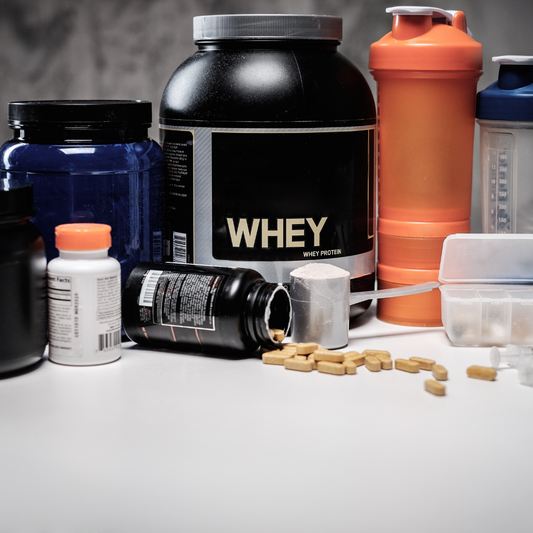If you’re on a journey to build muscle, you know that proper nutrition plays a crucial role. One of the best ways to ensure you’re getting the right nutrients is by incorporating protein bars into your diet. But not just any protein bars—homemade protein bars that you can tailor to your nutritional needs and taste preferences.
In this detailed guide, we’ll explore the benefits of homemade protein bars for muscle gain, provide recipes, and explain how you can create your own perfect muscle bars at home. We'll also target various keywords such as homemade energy bars, muscle bars, the protein bar, and more to ensure this article is comprehensive and ranks well on Google.
Why Choose Homemade Protein Bars?
Nutritional Control
When you make your protein bars at home, you have complete control over the ingredients. This means you can avoid unwanted additives and preservatives often found in store-bought options. You can customize the protein content to suit your muscle-building goals and include wholesome, nutrient-dense ingredients.
Cost-Effective
Homemade protein bars are often more affordable than their store-bought counterparts. By buying ingredients in bulk, you can make large batches of bars that will last you for weeks, saving money in the long run.
Taste and Variety
Store-bought protein bars can sometimes be bland or have an undesirable texture. Making your own allows you to experiment with flavors and textures until you find the perfect combination. Whether you prefer chewy, crunchy, or a mix of both, you can create a bar that satisfies your taste buds.
Essential Ingredients for Homemade Protein Bars
To make effective homemade protein bars for muscle gain, you'll need a mix of protein sources, healthy fats, and carbohydrates. Here are some key ingredients to consider:
Protein Sources
- Whey Protein: A complete protein that aids in muscle recovery and growth.
- Plant-Based Protein: Ideal for vegans or those with dairy sensitivities.
- Egg Whites: A natural source of high-quality protein.
Carbohydrates
- Oats: Provide a steady release of energy.
- Quinoa: A complete protein with additional carbs.
- Dried Fruits: Natural sweetness and additional nutrients.
Fats
- Nuts and Seeds: Almonds, walnuts, chia seeds, and flaxseeds offer healthy fats.
- Nut Butters: Peanut butter, almond butter, and cashew butter add flavor and healthy fats.
Binders and Sweeteners
- Honey or Maple Syrup: Natural sweeteners that also help bind the bars.
- Dates: Offer sweetness and a chewy texture.
Homemade Protein Bar Recipes
Classic Peanut Butter Protein Bars
Ingredients:
- 1 cup of rolled oats
- 1 cup of protein powder (whey or plant-based)
- 1 cup of natural peanut butter
- 1/2 cup of honey
- 1/2 cup of unsweetened almond milk
- 1/4 cup of chia seeds
- 1/4 cup of dark chocolate chips
Instructions:
- Mix the oats and protein powder in a large bowl.
- Add the peanut butter and honey, stirring until well combined.
- Gradually add almond milk until the mixture reaches a dough-like consistency.
- Fold in chia seeds and dark chocolate chips.
- Press the mixture into a lined baking dish and refrigerate for at least two hours before cutting into bars.
Chocolate Almond Energy Bars
Ingredients:
- 1 cup of rolled oats
- 1 cup of almond butter
- 1/2 cup of protein powder
- 1/4 cup of honey
- 1/4 cup of cocoa powder
- 1/4 cup of chopped almonds
- 1/4 cup of dried cranberries
Instructions:
- Combine the oats, protein powder, and cocoa powder in a bowl.
- Mix in the almond butter and honey until a thick dough forms.
- Stir in the chopped almonds and dried cranberries.
- Press the mixture into a baking dish and refrigerate until firm.
- Cut into bars and store in an airtight container.
Vegan Muscle Bars
Ingredients:
- 1 cup of rolled oats
- 1/2 cup of quinoa
- 1/2 cup of plant-based protein powder
- 1/2 cup of almond butter
- 1/4 cup of agave syrup
- 1/4 cup of flaxseeds
- 1/4 cup of dried apricots, chopped
Instructions:
- Cook the quinoa according to package instructions and let it cool.
- Mix the oats, protein powder, and flaxseeds in a bowl.
- Add the almond butter and agave syrup, stirring until combined.
- Fold in the cooked quinoa and dried apricots.
- Press into a baking dish and refrigerate for a few hours before slicing into bars.
Homemade Protein Bars Without Protein Powder
If you prefer not to use protein powder, you can still make effective muscle bars using natural protein sources like nuts, seeds, and legumes.
No-Protein-Powder Almond Bars
Ingredients:
- 1 cup of rolled oats
- 1 cup of almonds, finely chopped
- 1/2 cup of almond butter
- 1/2 cup of honey
- 1/2 cup of flaxseeds
- 1/4 cup of chia seeds
Instructions:
- Combine the oats, chopped almonds, flaxseeds, and chia seeds in a bowl.
- Mix in the almond butter and honey until a thick dough forms.
- Press the mixture into a baking dish and refrigerate until firm.
- Cut into bars and enjoy a protein-packed snack without the need for protein powder.
Nutritional Benefits of Homemade Protein Bars
Muscle Gain
Protein is essential for muscle repair and growth. Homemade protein bars provide a convenient and tasty way to increase your protein intake, helping you build muscle more effectively.
Energy Boost
Carbohydrates from oats, quinoa, and dried fruits provide a sustained energy release, making these bars perfect for a pre-workout snack or an afternoon pick-me-up.
Healthy Fats
Nuts, seeds, and nut butters add healthy fats that are crucial for overall health, including hormone production and nutrient absorption.
Studies and Research
A study published in the Journal of the International Society of Sports Nutrition highlighted the importance of protein timing and its effects on muscle hypertrophy. Consuming protein-rich snacks like homemade protein bars can help optimize muscle growth and recovery.
Another study in the American Journal of Clinical Nutrition found that combining protein with carbohydrates enhances muscle protein synthesis more than consuming protein alone, making these bars an excellent choice for post-workout recovery.
Conclusion
Homemade protein bars are a versatile, nutritious, and cost-effective option for anyone looking to boost their protein intake and support muscle gain. By using wholesome ingredients and tailoring the recipes to your preferences, you can create delicious and effective muscle bars that meet your fitness goals. Whether you choose to include protein powder or rely on natural protein sources, these bars are sure to become a staple in your diet.
By following this comprehensive guide, you’ll not only enjoy delicious homemade protein bars but also ensure you’re providing your body with the nutrients it needs to achieve your muscle gain goals. Happy bar-making!


















